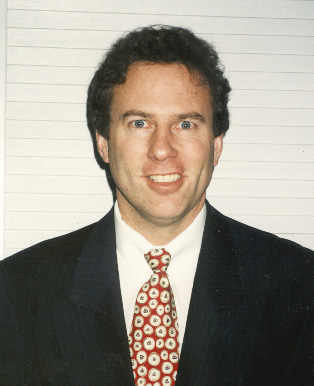TV Next Conference 2011: The OTTs Are Coming, The OTTs Are Coming!
From Oct. 4-5, in San Jose, Calif., together with about 200 others, I attended a well run and very informative telecom conference called TV Next.
TV Next is put on by Greg Fawson and his Jordan, Utah- and Berlin, Germany-based XMedia Research company. Its title replaces that of the same basic conference last year, called Set-Top Box 2010, which is quite fitting, because the real changes in TV today go way beyond the mere hardware side of the business.
Indeed, the real changes in TV circa 2011 are more appropriately described as including everything!
That said, one of the clear focuses of the two-day event was the online video, or Over-The-Top revolution, and how that plays out. Interestingly, there were multiple visions as to the ultimate success of OTT, ranging anywhere from very sanguine to surprisingly pessimistic. Several even supported a view I wrote about in Mixed Signals several weeks ago.
One of the less optimistic voices, that of my former boss and industry veteran Paul Kagan, noted (and I this time agree with him), that the in-place agreements that are controlled by the industry operators and content providers are typically long-term, and very restrictive in terms of what others can do with that content. Thus, the ability of newcomers, or the “MVPD Wannabees” as I call them, to rush into this space, is also restricted.
The big news of the event came in an opening speech on day two, where Verizon FiOS’s Eric Bruno was joined on stage by a representative from Microsoft Xbox’s Tom Gibbons to announce the deployment of new content services on Xbox’s in the households of Verizon subscribers. Yet, as much as this new announcement seems to open up new content to customers across the nation, in the end it touches less than 4 million existing FiOS subscribers, and it maintains the pay TV status quo in many if not most ways (or at least relative to that discussed in the paragraph immediately above).
The first day opening address was from Comcast SVP Steve Reynolds, who spoke of the technical strategy and product roadmaps for a typical wireline pay TV operator these days. Claiming that his company’s view is “all to service the customer,” Reynolds broadly mapped a transition from traditional video carriage to that of an IP-delivered and IP-dominated world.
The only other pay TV operator of real size and substance on the agenda was EchoStar VP Michael Hawkey, who presented the topic of “Life After The STB: TV From The Cloud,” on the afternoon of Day One. Hawkey and the hardware side of the EchoStar realm believe that the cloud is a secure and more valuable way of delivering content into the home, such that, among many things, it will eventually replace DVRs in homes. Having written an NAB/Focal Press book about DVRs , it is hard for me to stomach such a radical concept, but I can certainly see the logic (as least as far as concerns the idea of moving the DVR functionality into another more efficient and valuable locale beyond the household).
Throughout each day, sessions typically started on time. The panelists were also well picked, and afternoon sessions focused on single speakers delivering somewhat company-centered presentations, which nonetheless did focus on broader industry-based data and issues.
The lack of a Day One end-of-day mixer was a lost opportunity, because let’s face it, much of why people attend conferences is to network, be it to say hello to and catch up with old friends, or to meet a new one or two and share company business cards. That said, I’m willing to guess that at future such events, TV Next will be able to find a willing sponsor that can help foot the bill for such an important event. It’s also a great way to wind down the stress and high level “on” required of most executives these days, especially those involved in presenting or helping the show operate. As a former conference organizer, I can surely attest to the wisdom of that.
Thus, all in all, it was an event I hope to be able to attend frequently in the future, and one I would heartily recommend to others. Being in Silicon Valley is also quite good, because there are an awful lot of companies there, or that come there, so the locale induces more business meetings and related opportunities.
Jimmy Schaeffler is chairman and CSO of Carmel-by-the-Sea-based consultancy The Carmel Group (www.carmelgroup.com).
Multichannel Newsletter
The smarter way to stay on top of the multichannel video marketplace. Sign up below.
Jimmy Schaeffler is chairman and CSO of The Carmel Group, a nearly three-decades-old west coast-based telecom and entertainment consultancy founded in 1995.

